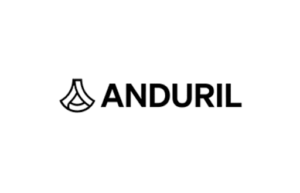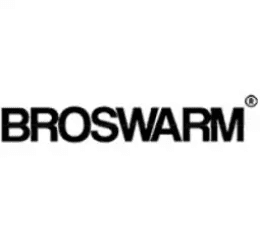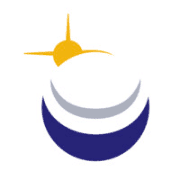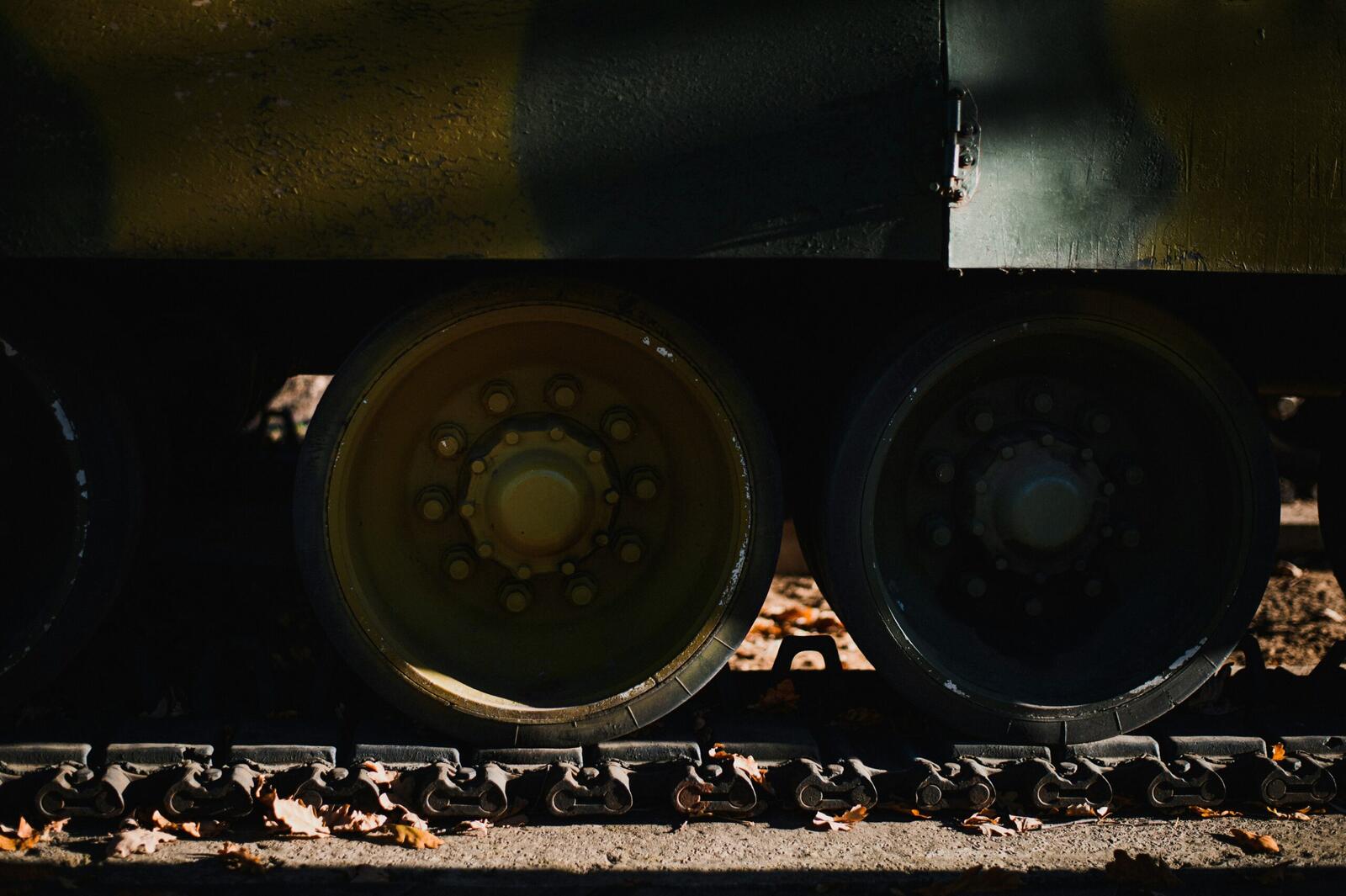The defence technology industry is largely driven by technological innovation, fueled by emerging geopolitical tensions, the depletion of weapon stocks and an increase in global defence spending. While most of the world views increasing levels of conflict around the globe unfavourably, for the defence tech industry, it simply means growth.
With geopolitical tension becoming especially prevalent on the world stage over the last few years, it’s no wonder that the industry is experiencing significant, consistent growth.
In fact, Market and Market recorded a 0.1% increase in GDP from 2022 to 2023, with Russia, the United States, India, China and Saudi Arabia contributing an incredible 67% of this figure.
A key driving force in the acceleration of growth in the global defence tech industry has been the shift by government agencies and institutions to collaborate with startups, rather than attempting to innovate independently. This collaboration encourages the broadening of the scope of the defence sector, making room for far more innovation and creativity.
While large investments in defence tech have been seen as morally ambiguous in the past, these concerns have largely been outweighed by many nations’ desire for more comprehensive national security measures amidst rising conflict around the world, especially in the context of the Russia-Ukraine war and amidst growing tension between the US and China, among other things.
According to Pitchbook, US-based companies in the defence tech industry have enjoyed a 40% increase in investment by venture capitalists over the last seven years, demonstrating significant growth in the industry. In fact, the market is expected to expand even more, at a compound annual growth rate of about 16%, according to Pitchbook.
In an industry that has experienced significant growth in recent years and shows no signs of slowing down, the role of startups has become increasingly important, playing an essential part in leading technological innovation in the industry. Defence tech startups are popping up all over the world, with specific locations becoming increasingly favourable for such businesses due to both direct and indirect incentives provided by both governments and national industries. For these reasons, recent years have seen the majority of these startups based in the United States, Israel and Lithuania.
With that in mind, we’re going to explore a more comprehensive explanation of what defence tech is before diving into the countries around the world with some of the largest defence tech sectors. From there, we’ll get into our list of the top 12 defence tech startups.
What is Defence Tech?
The defence technology industry includes institutions, companies and organisations that are involved in the research, development, production and application of technology that is designed for military and defence purposes.
Over recent years, the industry has grown to include a broad variety of different sectors, including cybersecurity; robotics and unmanned systems; directed energy weapon systems; aerospace, aviation and space tech; artificial intelligence and machine learning; virtual reality and augmented reality; and more – essentially, anything involved in enhancing national security and defence capabilities.
Much of the growth and expansion of the defence tech industry is occurring as a result of the growing potential for solving complicated defence challenges using advanced technological solutions, with the industry as a whole having become far more inclined to accept contributions from external players who had previously been away from contributing to national security efforts.
Countries with Large Defence Tech Sectors
Unsurprisingly, the countries with the largest and most active defence tech sectors are those that are most involved in global conflict and have very active private sectors, since startups have become such a significant part of innovation and development in the industry.
Unsurprisingly, the United States is a giant in the global defence sector, along with other major players like China, Russia and Saudi Arabia. Indeed, according to Market and Market, the top five spenders in the defence tech industry from 2022 to 2023 were the United States, China, Russia, India and Saudia Arabi, in that order, contributing 39.1%, 13%, 3.8%, 3.6% and 3.3% of the global total respectively.
In addition to the main players in the industry, several other nations are experiencing significant growth in the defence tech industry due to factors including their recent involvement in global tension and conflict, as well as their relative proximity to conflict. However, another reason behind the growth in the industry, especially among European countries, can be attributed to Europe’s Defence Industrial Strategy, launched in 2030.
The aim of the Defence Industrial Strategy is to ensure defence industrial readiness in the European Union in the case of unprecedented conflict. The strategy involves an encouragement for Europeans to invest in other European defence tech companies and products; greater support of research in the European tech defence industry; additional funding from the European Union; and increased global partnerships. The goal is to improve the safety and resilience of not only the EU but other key allies too, including NATO and the Ukraine.
Lithuania has emerged as an excellent example of how a small nation can successfully implement these types of reforms to achieve very real results. Indeed, Lithuania’s startup industry is one of the fastest-growing in all of Central and Eastern Europe – it’s seen the value of local startups increase by seven times between 2018 and 2023, in addition to significant growth in the country’s manufacturing sector.
Top 10 Defence Tech Companies
Here are 10 of the top defence tech companies around the world.
1. Anduril Industries

Founded in 2017, Anduril Industries Inc. specialises in advanced autonomous systems, combining artificial intelligence, cybersecurity, robotics, computer vision and innovative networking technologies to create brand-new software and hardware-based defence systems.
The company was founded in the US by American entrepreneur Palmer Luckey, alongside a number of investors associated with industry giants including SpaceX and Palantir. Anduril operates on the idea of disrupting the status quo in national defence technology by using commercial military technology to avoid bureaucratic red tape, combat global conflict and deter war.
Some of Anduril’s main products include unmanned aerial systems (UAS), counter-unmanned aerial systems (CUAS), semi-portable autonomous surveillance systems and networked command and control software.
2. BROSWARM

BROSWARM is embracing the power of artificial intelligence to achieve significant accomplishments in the world of sensory arrays and sensor fusion technology. The tech can be used in a plethora of different applications, but their main focus is landmine detection.
Founded as recently as 2023, this Lithuanian company has raised a significant amount of investment. Much of this is due to their 2024 victory at the NATO Innovation Challenge that focused on a specific sector within defence tech that pertains to the recognition and neutralisation of explosives – that is, BROSWARM’s speciality. In addition, the company focuses on a balance on safety, efficiency and scalability in their endeavours, using drones with advanced sensory technology to eliminate the need for humans entering the minefield.
The company is led by Ernestas Zvaigzdinas, an experienced entrepreneur, who was inspired by the ongoing war in the Ukraine.
3. Combatica

Based in Israel, Combatica provides users with next-generation combat training simulations by means of virtual reality technology. Focuses on the aerospace, maritime and defence sectors, and since its establishment in 2020, it’s been used to train personnel including Israel’s Defence Forces (IDF).
The simulations include dynamic scenarios created by AI technology, as well as force-on-force training and tactical instruction.
Led by co-founders Erol Herzog and Yair Rothenberg, Combatica uses hardware that is intentionally compact and fully mobile so that military personnel can carry it with them wherever they go. The software is also flexible and easy to use, allowing instructors to create training scenarios quickly and easily without any additional training in coding.
4. AISPECO

AISPECO manufactures and organises advanced geospatial data to create monitoring systems that can be used by helicopters, planes and more. They use data collected by companies in fields such as city mapping, mining, civil engineering, forestry, and utilities, as well as their own drone footage, to create platforms for aerial inspection, surveying and mapping.
The company has moved towards using drones in their inspections as opposed to previously used aircrafts and helicopters, making the process safer, more subtle and more cost-effective.
Rokas Adiklis, a Lithuanian entrepreneur, founded AISPECO in 2020, and the company initially started off doing utility inspections before moving on to their goal of making aerial mapping technology more accessible and affordable, especially in the world of defence tech.
5. Crow Industries

Crow Industries, a US-based company founded by James Crowell in 2018, specialises in robotics, autonomy and AI that is suitable for extreme environements in the space, mining and defence industries. To do this, they create and use fully autonomous aerial and ground-based robots to obtain data related to extreme environments – they’re able to function and obtain aerial, surface and sub-surface data.
From there, users are able to obtain high-quality situational awareness of the terrain from anywhere in the world, keeping human operators safe and far away from potentially harmful sitautions, which is particularly useful in dangerous military circumstances.
As well as providing additional safety, Crow Industries’ technology also operates with exceptional efficacy and efficiency due to its AI technology, performing tasks quickly and accurately.
More from Startups
- GCSE Results Day 2025: What Does Exam Season Have In Common with Startup Life?
- Top 5 SaaS Startups in New Zealand 2025
- What Is a Series K Raise?
- Hiring a Startup Lawyer: What To Ask Before You Sign Anything
- Top 8 SaaS Startups in Australia 2025
- What Bank Account Features Does Your Startup Need?
- DramaShorts: Redefining Vertical Storytelling in the Age of Mobile Entertainment
- Founder of the Week: Barry Abrams
6. Terminal Autonomy

Founded in the wake of Russia’s invasion of Ukraine in 2022 by Roman Antonov and Francisco Serra-Martins, Terminal Autonomy was established and developed as a defence tech company that aimed to produce and improve military technology by means of simple and affordable systems.
Terminal Autonomy specialises in the producion of Unmanned Aerial Vehicles (UAV), specifically an assortment of drones that are designed as precision strike munition carriers. Their three main products – the AQC 120 Scalpel Loitering Munition, AQ 100 Bayonet Loitering Munition and the AQ 400 Scythe – are able to fly in GNSS-denied areas, creating the potential for surveilance that hasn’t been possible before. They’re also produced using low-cost materials, making the systems significantly cheaper than competitors’.
7. Modern Intelligence

Modern Intelligence aims to use artificial intelligence technology to enhance defence capabilities by means of insights driven by AI – this enables real-time threat detection, target analysis and decision making that is essential in military environments. Furthermore, their technology is easily adoptable to different types of hardware and software for exceptional ease of integration and widespread compatibility.
Technology produced by the US-based Modern Intelligence is suitable for a variety of different applications, including aerial surveilance, maritime surveillance and ground operations too.
Modern Intelligence was founded by the trio of John Dulin, Tristan Tager and Joseph Cieslik in 2020.
8. FlightOps.io

FlightOps.io creates AI-powered drones and other Unmanned Aerial Vehicles (UAV), remove the need for human pilots to improve safety, increase the company’s scalability and improve profitiability.
The most notable innovation of FlightOps.io is their trusty AI-co-pilot named Jeeves – this technology allows users to control fleets of drones using nothing more than speech, simplifying the use of drones.
Furthermore, the company’s technology provides users with valuable real-time intelligence and logistics, proving to be an incredibly valuable tool for military and defence purposes.
Shay Levy, Israeli CEO and founder of FlightOps.io, established the company in 2020 and has seen significant success since then.
9. Thrust

Lithuanian defence tech company, Thrust, founded in 2018, specialises in the design, manufacturing, testing and integration of highly advanced drone systems. They do so by means of AI-powered multi-sensor and multi-scale remote sensing solutions, as well as AI-powered analytics.
Thrust’s multifunctional drone systems are able to produce high-quality data while conducting productive aerial inspections – this includes long-range and low-altitude flights. Drones are capable of carrying weights of up to eight kilograms, and they can comfortably reach speeds raging from 30 to an incredible 200 kilometres per hour, allowing them exceptional versatility and utility.
Led by co-founders Daiva Urbanavičienė and Dr. Robertas Urbanavičius, Thrust is also comitted to achieving a diverse professional environment, with gender inclusivity and the forefront of their goals within the defence tech industry.
10. Smart IR

Smart IR uses advanced infrared technology to help satellites manage thermal energy in order to improve imaging in night vision technology, surveillance, target aquicisition, missile tracking and more. The company has created technology that makes it possible to enable satellites to flexibly manage thermal energy in a way that hasn’t been possible in the past.
Since its establishment in 2020, Smart IR has experienced immense success, having signed a contract with the European Space Agency Business Incubation Centre in the UK (ESA BIC UK) to work towards developing viable solutions to control thermal radiation on demand.
The company was founded in the UK in 2020 by Dr. Coskun Kocabas, Dr. Margherita Sepioni and Paul Kahn.
The Future of Defence Tech
The defense technology industry seems to be going from strength to strength, fueled by continued incentive for growth, with a vast amount of growing tension between powerful nations and an incrcreasig likelihood for additional conflict. Furthermore, the industry is experiencing constant technological advancement across the board, aided by defence tech startups around the world.
There also seem to be specific innovative technologies that are poised to be particularly influential in the industry in coming years as they continue to advance:
- Advanced artificial intelligece and new applications for AI.
- New robotics and autonomous systems
- Internet of Millitary Things (IoMT – a millitary specific version of IoT)
- Blockchain technology
- 5G conectivity
- Big data analytics
- Increase in cyber warfare
- Improvements in detection and surveillance systems
As these specific sectors and technologies improve and advance, and they seem to be doing, it seems as though the defence tech industry will exprience consistent growth and investment, fueled by a universal need for defence and a competitive edge.



